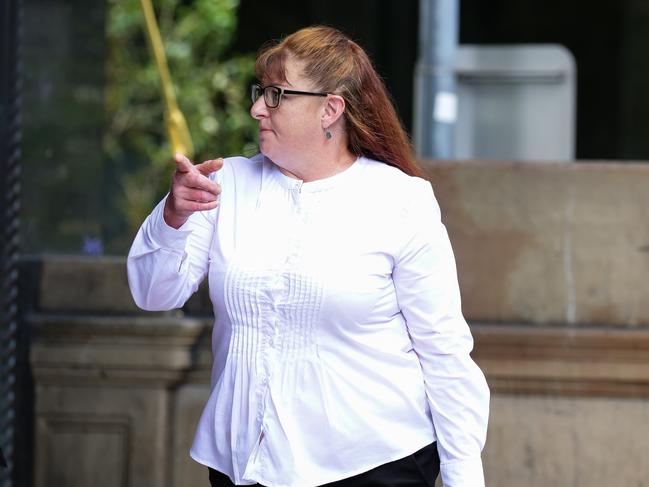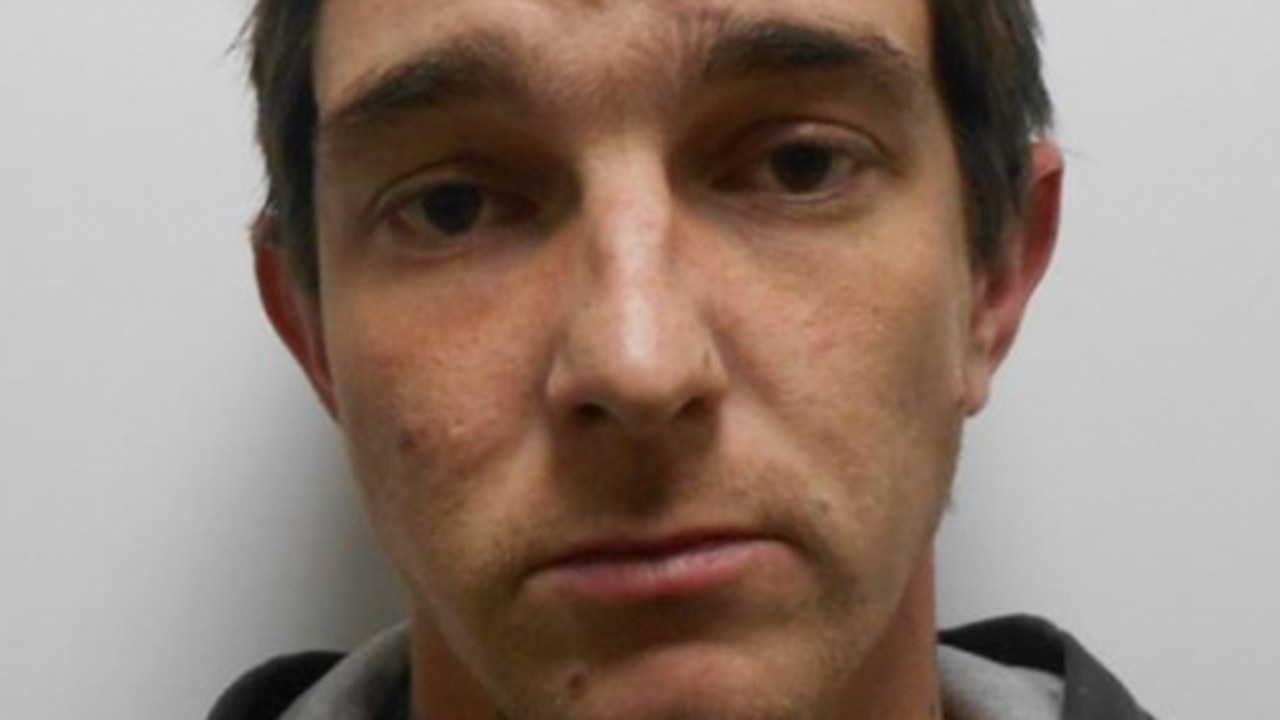Emaciated cancer patient reminded doctor of Nazi concentration camps, court hears
A cancer expert said he could only reach for a shocking historical comparison when he saw pictures of a patient who was allegedly neglected before his death.

NewsWire
Don't miss out on the headlines from NewsWire. Followed categories will be added to My News.
A professor of oncology was so shocked by the condition of cancer patient Jonathan Young he was reminded of concentration camp prisoners in Nazi Germany, a court has been told.
Professor Richard Fox drew the comparison as he testified this week at the District Court trial of Libby Jade Baker, who is charged with the manslaughter of Mr Young, her former partner.
Mr Young died in 2012, 11 days after he was admitted to Hawkesbury Hospital weighing just 35.8kg.
His emaciated body was marked with severe ulcers and, according to evidence from a nurse, he was “fully infested” with lice.

Mr Young, 58, had rectal and renal cancer, peripheral vascular disease and had suffered strokes that caused disability to his right side.
Ms Baker has pleaded not guilty to causing his death by gross negligence as his carer, and not guilty to an alternative charge of failing to provide Mr Young with the necessities of life.
Professor Fox agreed under cross-examination that his comparison to concentration camp prisoners was not based on a study but rather books he had read and footage he had seen on TV.
Asked if he had any knowledge about whether prisoners of war had health problems similar to Mr Young’s, the professor said he was specifically talking about German war camps where “civilians of all ages, including younger people” were imprisoned.
“It’s quite apparent you would not have expected the entire population of that camp of all ages to have that variety of comorbidities,” he said.
Defence barrister Josh Brock subsequently attempted to strike out evidence related to prisoners of war, saying it was prejudicial and offered little assistance given Professor Fox was not referencing any research.
The application was swiftly dismissed by Judge Deborah Sweeney, who is presiding over the trial without a jury.
“I think you misunderstood his opinion,” she said.
“What he said was, that he never in all his oncology practice since 1974 had seen anyone in Mr Young’s condition and the only comparison he could make was what he’d seen in newsreels.”

Professor Fox was challenged on his evidence that Mr Young’s bone was exposed in an extremely deep pressure sore on his hip.
Mr Brock said notes suggested “exposed deep muscle”, but not bone.
“It’s possible it might not be accurate,” Professor Fox said, but he maintained the photos were of decent quality.
Asked directly if he accepted the bone potentially was not exposed, he said “it potentially was exposed”.
Professor Fox said nurses had ceased home visits to Mr Young on July 26, 2012, as they were “concerned for their own safety” in the home and by “the anger expressed” by Ms Baker.
When Mr Young arrived at hospital, he began “wolfing down huge amounts of food”, indicating he both had an appetite and was capable of swallowing, the professor said.
He told the court that Mr Young’s emaciated appearance suggested he either had no appetite or wasn’t eating in the months prior.
He said it was “improbable” factors such as ceasing to smoke or a change of environment would have drastically altered Mr Young’s appetite on admission.
The cancer expert said evidence from a nurse, who described Mr Young as looking like he lost “half his body weight” from July to October, matched with his description of malnutrition as the cause of Mr Young’s emaciation and muscle wastage.
The trial continues.
Originally published as Emaciated cancer patient reminded doctor of Nazi concentration camps, court hears



